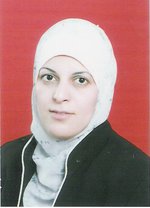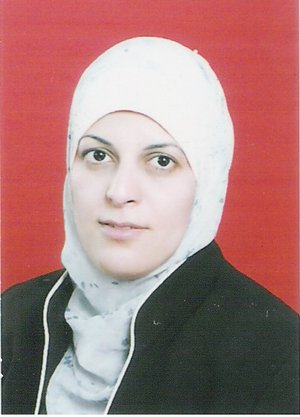سماح الجابي
- طبيعة العمل
- أكاديمي
- المهنة
- استاذ مشارك
- البريد الإلكتروني
- [email protected]
- هاتف المكتب
- (+970) 9 2345113 Ext. 2768


سماح الجابي
- طبيعة العمل
- أكاديمي
- المهنة
- استاذ مشارك
- البريد الإلكتروني
- [email protected]
- هاتف المكتب
- (+970) 9 2345113 Ext. 2768
- Course Title
- Therapeutics I
- Course Number
- 410325
- Instructor Name
- سماح الجابي
- Contact Information
- [email protected]
- Semester(s) and academic year(s)
- First Semester 2020
- Compulsory / Elective
- Compulsory
This course is the first course in a sequence of the three Therapeutic courses in the curriculum. It will provide introductory information designed to assist the student to begin understanding the rationale upon which many drug therapy decisions are based. Principles, concepts, processes, and skills in pharmacotherapy will be emphasized. Therapeutic topics and case studies of a number of common diseases, including cardiovascular disorders, cerebrovascular diseases, endocrine disorders, and bone and joint disorders will be covered with a comprehensive background related to the pathophysiology, pharmacology, pharmacokinetics of the medications used.
With a thorough background established in pathophysiology, pharmacology, pharmacokinetics and other courses in the curriculum, the aim of this course is to prepare master students to develop rational drug therapy plans, identify conditions for monitoring pharmacotherapy and the identification of conditions associated with these common diseases that require referral.
By the end of the course, the student will be able to:
a. Knowledge and Understanding:
a.1. Recognize symptoms, pathophysiology, laboratory tests, physical examination, diagnosis, and prognosis of cardiovascular disorders, cerebrovascular diseases, endocrine disorders, and bone and joint disorders.
a.2. Describe the clinical management of various diseases covered.
a.3. Identify drug-related problems such as drug side effects, drug interactions, and drug contraindication
a.4. Recognize the desired outcomes of drug therapy of selected diseases covered.
a.5. Clarify the relationship between rational therapy of selected diseases to the pathophysiology of these diseases and the mechanism of action of drugs used to treat these diseases.
b. Intellectual Skills
b.1. Design appropriate pharmacologic and non-pharmacologic plans for selected diseases.
b.2. Compare between rational and irrational drug therapy for selected diseases.
b.3. Design plans for monitoring drug efficacy, adverse effects, compliance and drug interactions.
b.4. Analyze relevant information for clinical case notes and assess problems in therapeutic management of patients.
c. Professional and Practical Skills
c.1. Evaluate and solve drug-related and patient-related problems.
c.2. Design monitoring plan for drug regimen therapeutic outcomes.
c.3. Apply learned information in providing appropriate patient counseling.
d. General and Transferable Skills
d.1. Search internet database for new updates in treatment guidelines.
d.2. Write a report and give oral presentations.
d.3. Work coherently and successfully as a part of a team.
d.4. Appreciate team work in a seminar.
TEXT BOOKS
- Barbara Wells, Terry Schwinghammer, Joseph DiPiro, Cecily DiPiro. Pharmacotherapy Handbook. 10th edition, 2017. McGraw-Hill Medical.
- Mary Anne Koda-Kimble, Lloyd Yee Young, Wayne Kradjan, Joseph Guglielmo, Brian Alldredge, Robin Corelli, Bradley Williams. Applied Therapeutics: The Clinical Use of Drugs. 10th edition, 2012. Lippincott Williams & Wilkins.
REFERENCES
- Joseph DiPiro, Robert Talbert, Gary Yee, Gary Matzke, Barbara Wells, Michael Posey. Pharmacotherapy: A Pathophysiologic Approach. 8th edition, 2011. McGraw-Hill Medical.
- Roger Walker, Cate Whittlesea. Clinical Pharmacy and Therapeutics. 5th edition, 2011. Churchill Livingstone.
- Charles Lacy, Lora Armstrong, Morton Goldman. Drug Information Handbook: A Comprehensive Resource for All Clinicians and Healthcare Professionals. 20th edition, 2011. Lexi-Comp.
- New treatment guidelines.
- Recent original and review articles
- Evidence based medicine (DynaMed)
| Activity | Percent (%) |
|---|---|
| First-hour exam | 20% |
| Second-hour exam | 20% |
| Report and seminar presentation | 10% |
| Final exam | 50% |